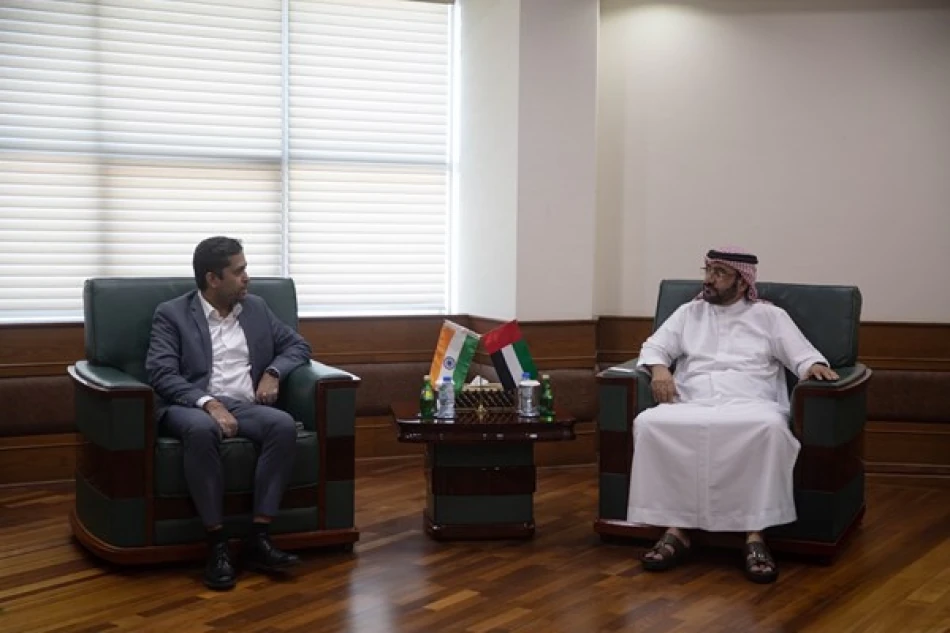
Ras Al Khaimah Chamber Explores Bolstering UAE-India Trade Ties
UAE's Ras Al Khaimah Courts Indian Investment as Gulf States Intensify Asia-Pacific Trade Push
The Ras Al Khaimah Chamber of Commerce has deepened discussions with Indian business leaders to expand bilateral trade and investment opportunities, highlighting the UAE's strategic pivot toward diversifying its economic partnerships beyond traditional Western markets. The meeting underscores how smaller UAE emirates are leveraging their competitive advantages to attract foreign capital amid intensifying regional competition for investment flows.
Strategic Geographic Positioning Drives Investment Appeal
During the high-level meeting, Youssef Mohammed Ismail, Chairman of the Higher Committee of the Saud bin Saqr Foundation for Youth Development and First Vice Chairman of the Ras Al Khaimah Chamber of Commerce, emphasized the emirate's abundant natural resources and strategic location as key differentiators. The emirate's expansion of free trade zones represents a calculated move to create investment-friendly environments supported by diverse incentives.
This approach mirrors successful strategies employed by Singapore and Hong Kong, where specialized economic zones have become magnets for international business. Ras Al Khaimah's focus on free zones positions it to compete directly with Dubai and Abu Dhabi while offering potentially more attractive terms for specific industries.
India-UAE Trade Relations Reach New Heights
P.G. Krishnan, the Administrative and Commercial Consul at India's Consulate General in Dubai and the Northern Emirates, highlighted the deep historical and commercial ties between the two nations. This diplomatic engagement comes as India-UAE trade reached record levels, with bilateral non-oil trade exceeding $50 billion in recent years.
The timing is particularly significant as India seeks to reduce its dependence on Chinese supply chains while the UAE positions itself as a crucial gateway between Asian and Middle Eastern markets. For Indian businesses, the UAE offers access to African and European markets through established trade corridors.
Market Implications and Investment Opportunities
The meeting signals broader trends reshaping Gulf investment strategies. Unlike the oil-boom era when Gulf states primarily exported capital, today's approach emphasizes creating value-added manufacturing and service hubs that can compete globally.
For investors, Ras Al Khaimah presents several advantages over more saturated markets like Dubai. Lower operational costs, streamlined regulations, and targeted sector support make it attractive for mid-market companies seeking regional expansion. Industries likely to benefit include logistics, manufacturing, technology services, and renewable energy.
Regional Competition Intensifies
This UAE-India engagement reflects intensifying competition among Gulf states to attract Asian investment. Saudi Arabia's Vision 2030 and Qatar's post-World Cup economic diversification efforts have created pressure on smaller emirates to differentiate themselves.
Ras Al Khaimah's strategy appears focused on becoming a specialized hub rather than competing directly with Dubai's broad-based approach. This targeted positioning could prove more sustainable as regional markets mature and investors seek specific competitive advantages rather than general business-friendly environments.
The success of these initiatives will largely depend on execution quality and the emirate's ability to deliver on promised incentives while maintaining regulatory stability that international investors increasingly demand.
Most Viewed News

 Layla Al Mansoori
Layla Al Mansoori






